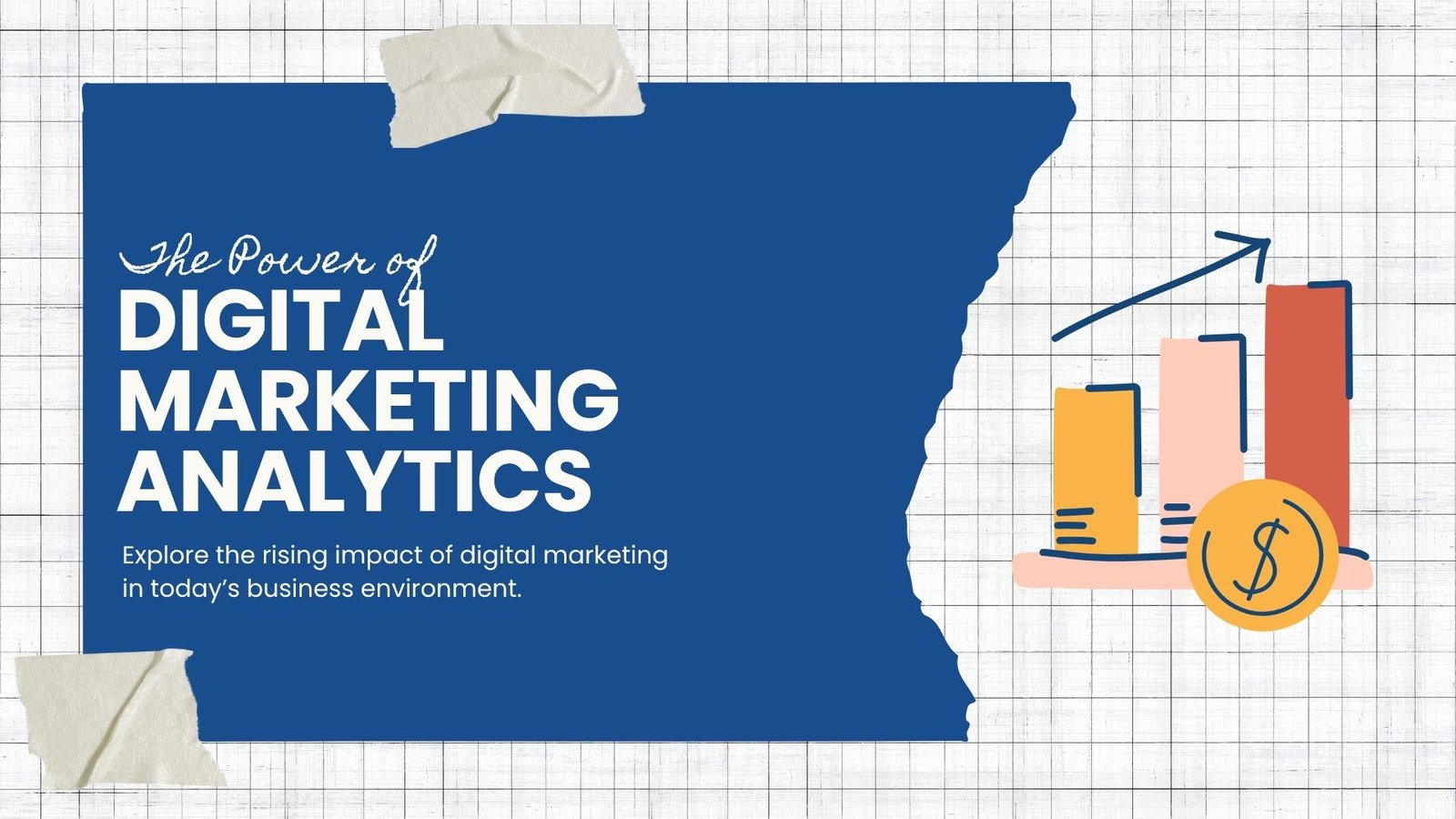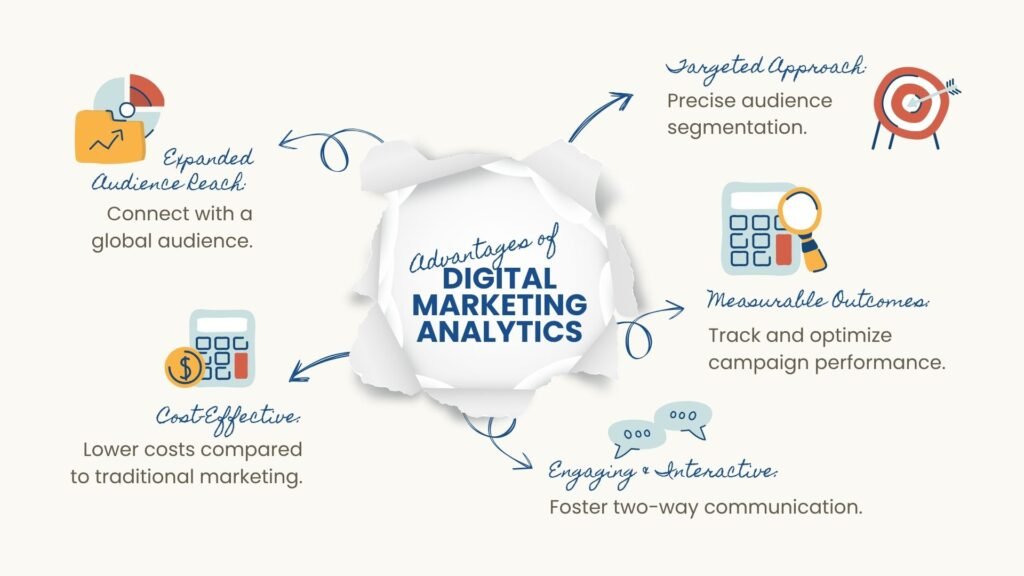How Digital Marketing Analytics Can Improve Campaign Performance

The Role of Analytics in Successful Digital Marketing Campaigns
In today’s data-driven world, digital marketing analytics has become the cornerstone of successful marketing strategies. Every click, impression, and conversion tells a story — and understanding that story can help businesses optimize their campaigns for maximum results.
Whether you’re managing social media, SEO, or paid ads, leveraging analytics can transform guesswork into precision. But how exactly does analytics improve digital marketing performance? Let’s dive in.
1.Understanding Digital Marketing Analytics
By interpreting these insights, marketers can make informed decisions that drive better results. For instance, you can identify which marketing channels perform best, which audience segments engage the most, and which campaigns need adjustment.
Pro Tip: Tools like Google Analytics, Google Search Console, and HubSpot Marketing Analytics are great starting points to track key performance metrics.
2.Why Analytics Is Essential for Campaign Success
Analytics not only tells you what’s working but also reveals what’s not. By consistently monitoring your campaigns, you can:
- Identify high-performing channels (like organic search or social media ads)
- Allocate budgets effectively to maximize ROI
- Understand user behavior to refine content strategies
- Reduce ad spend waste by removing underperforming segments
For example, imagine launching a paid campaign without analyzing performance metrics. You might end up spending thousands without knowing if the campaign truly delivered value. Analytics eliminates that uncertainty.

3. Key Metrics That Drive Marketing Success
To truly harness the power of digital marketing analytics, you need to focus on the right KPIs (Key Performance Indicators):
- Conversion Rate (CR): Measures how effectively visitors turn into customers.
- Click-Through Rate (CTR): Evaluates how engaging your ad or content is.
- Cost per Acquisition (CPA): Helps assess the efficiency of paid campaigns.
- Customer Lifetime Value (CLV): Indicates the long-term value of a customer.
- Return on Ad Spend (ROAS): Determines how much revenue you earn per ad dollar spent.
By tracking these metrics regularly, businesses can make smarter, data-backed marketing decisions.
4.How Analytics Improves Campaign Performance
Using marketing analytics tools, you can:
- Enhance targeting: Identify your ideal audience and reach them more effectively.
- Refine content: Analyze engagement data to create more relevant and persuasive content.
- Optimize ad performance: Test different creatives and messaging using A/B testing.
- Improve user experience (UX): Monitor website heatmaps to understand user flow and reduce drop-offs.
Additionally, analytics encourages a continuous improvement mindset — every campaign can be refined based on measurable insights.
5.The Future of Analytics in Digital Marketing
Conclusion: Make Data Your Competitive Advantage
In conclusion, digital marketing analytics empowers businesses to move beyond assumptions and make smarter, faster, and more accurate decisions. It bridges the gap between creativity and performance, ensuring every marketing effort delivers measurable impact.
By understanding your data and adapting your strategies, you can continuously improve results and maximize ROI.
If you’re ready to elevate your marketing game with data-driven insights and expert web development, partner with Gracewell Technologies — your trusted digital growth partner.
